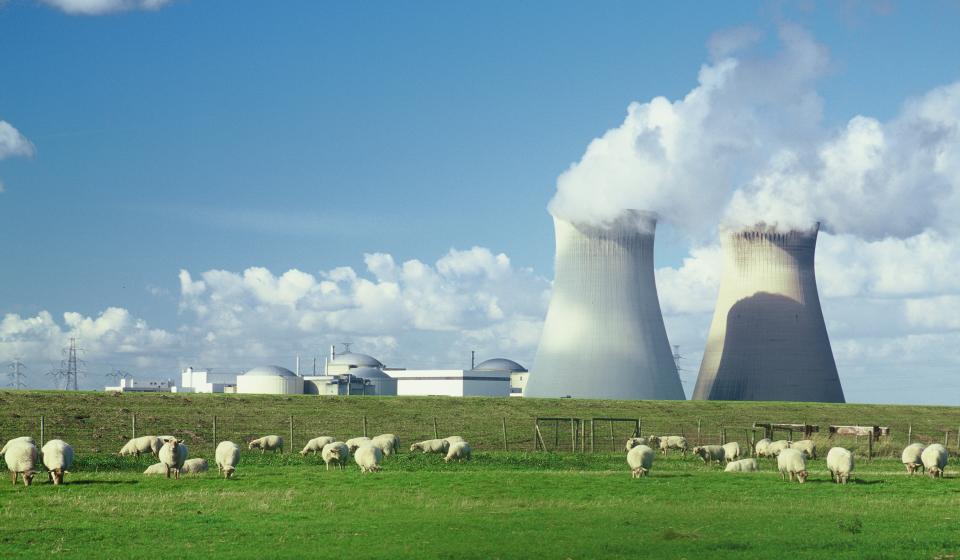Are the nuclear power plants of Electrabel obsolete?
Which nuclear power plants will be operational this winter?
Thierry Saegeman: “In November, only one of our seven units, Doel 3, will be operational. As of November 17, Tihange 1 will be reconnected to the grid, in addition to Doel 3.
There are three reasons for the unavailability of our nuclear facilities:
- Tihange 1 will be undergoing a scheduled overhaul from October 13 until November 17. The fuel has to be replaced in order for the unit to be operational this winter.
- Doel 1 and Doel 2 will be shut down to carry out some of the work that needs to be done as part of the 10-year lifetime extension. The total amount being invested is € 700 million. A small leak has been detected and our teams are working on the analyses and the necessary repair works. At this stage, we have communicated our best estimate for the restart date to the market. However, as with any large industrial project, the effective end date depends on potential changes over the course of the project.
- At Doel 4, Tihange 2 and Tihange 3, inspections have been carried out on the concrete in the non-nuclear buildings housing the emergency equipment. These buildings are only used in case of an external accident (such as an airplane crash). We need to repair this building as a result of anomalies in the steel reinforcements located at the bottom of a very thick ceiling. The concrete deterioration varies from building to building, but we have the best experts working very hard to finish the analyses and determine the best way to complete the works. Once these are complete, the Federal Agency for Nuclear Control (FANC) will of course need to give its approval before the units can be restarted safely.”
Why was the problem with the concrete not detected earlier? Was it underestimated?
T.S.: “Electrabel has always monitored very carefully the condition of the concrete, as evidenced by the inspection reports.
Where deterioration was identified, the necessary repair work was carried out immediately or, if there was no nuclear safety risk, was scheduled in accordance with our maintenance policy. Nuclear safety is our company’s top priority. Electrabel has always reported the condition of the concrete to the FANC and taken the necessary actions in consultation with them. We have a continuous maintenance programme in which we invest huge amounts, approximately € 200 million per year (in addition to the € 1.3 billion being spent on the lifetime extension). So it’s very important to stress that our power plants are not defective. The issue here is one of nuclear safety, which is something that we have never compromised on and never will.”
Are the plants obsolete? Do they pose nuclear safety risks?
T.S.: “Obviously, our power plants are no longer the same as they were 40 years ago. They have been continually upgraded and modernised over the years, in particular during the ten-yearly overhauls. They meet current safety standards, which are extremely stringent. The concrete deterioration detected is in the non-nuclear separate buildings and has never posed a risk to the population or the environment. We will of course repair the damage in order to guarantee nuclear safety.
It is important to emphasise that our company invests heavily in annual maintenance of its power plants: around € 200 million per year. Moreover, the lifetime extension of our plants is far from unusual. Of the 438 active nuclear reactors worldwide, 63 are at least 40 years old. They include the Borssele power station in the Netherlands, Beznau in Switzerland, Ringhals in Sweden and more than 30 nuclear power stations in the United States. Worldwide, a number of nuclear plants have had their operating lives extended to 60 years, with 80-year lifetimes even planned for some plants in the United States. Having to shut down our generation units temporarily is not something we’re pleased about, but nuclear safety must come first.”
Articles and press releases

ENGIE reconnects Doel 4 to the electricity grid on schedule and successfully completes a main objective of the Phoenix agreements

Closing of the agreement between ENGIE and the Belgian government
Our strategy to accelerate the energy transition

Code Red action: objectifying the debate
Among other things, the claim that ENGIE is the most polluting company in Belgium is factually incorrect. Code Red also made wrong assumptions about ENGIE's strategy and activities.
Below are some elements to counter their arguments: